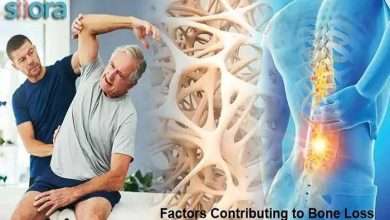Lactose intolerance

Everyone should focus on mental and overall physical health. People who are unable to digest dairy products are more likely to get diagnosed with Lactose Intolerance. Hence, it is significant to focus on the mentioned symptoms and consult a nutritionist from oladoc.com. A competent and well-qualified nutritionist will help in diagnoses the problem. Also, provide a diet plan which can help in managing the symptoms. With adequate dietary intake, the person will be able to lead a healthier and happier life.
What is lactose intolerance?
Lactose is the main carbohydrate; that is present in dairy products. When a person is unable to digest lactose suffers from the disorder, which is commonly known as lactose intolerance. It is a common condition where enzyme production is low.
What are the indications of a person being lactose intolerant?
The symptoms of lactose intolerance are observed after consuming milk or other related items within a timespan of 40-50 mins. The symptoms of lactose intolerance are:
- Diarrhea after taking dairy products
- Feeling nausea after consuming items made of dairy
- Flatulence and abdominal distension
- Abdominal Pain
- Indigestion
- Recurrent episodes of headaches
- Unable to concentrate
- Mouth ulcers and skin related problems; such as eczema
What can be the cause of being lactose intolerance?
Lactose intolerance can be genetic or related to other issues. The causes of lactose intolerance are:
- Primary lactase deficiency: It is a condition in which small intestines produce less lactose after birth. With time the levels decrease, and the person starts to exhibit the symptoms.
- Injury to small intestines: Infections and using medications can result in damage to the small intestine. Crohn’s and celiac disease may be the cause of lactose intolerance. With proper treatment, the condition can be reversed.
- Congenital Lactose Deficiency: In this condition, there is less or absolutely no production of lactose right from birth.
- Premature Birth: The small intestines are unable to produce adequate lactose in premature babies. As the baby gets older, the production increases and the baby becomes lactose tolerant.
What are the complications correlated with lactose intolerance?
If the person is not consulting a specialist and managing the symptoms, it can cause other problems; such as:
- Osteopenia: It is the condition; in which the person has low cone density.
- Weight loss: Irrational weight loss can deteriorate overall health, and it may cause a person to suffer from osteoporosis.
- Malnutrition: If the person is not using substitutes, it can result in malnutrition.
What is the treatment available for lactose intolerance?
- Using Enzyme Supplements: Enzyme supplements can be helpful for some patients. The supplements help in the digestion of lactose, but it varies from person to person.
- Eating Probiotics and Prebiotics: Research has shown probiotics and prebiotics are beneficial for treating lactose intolerance.
How can one handle the symptoms of lactose intolerance?
If the symptoms are severe and the person is facing issues should eradicate the milk products from the diet and find substitutes.
The food items that should be avoided include:
- Cow and Goat milk
- All sorts of cheese
- Yogurt and butter
- Ice-creams
- Bakery items such as cakes and biscuits
- Cereals
- Custard and other desserts made with cream
The substitute that can be beneficial are:
- Fish: Boned fish are a source of high calcium
- Intake of calcium-fortified Foods: Almond and soy milk as a substitute in tea and other desserts.
If someone is showing symptoms and is unable to find a way to help manage the diet plan, should consult the best dietician in Islamabad. The dietician can help in diagnoses, treatment, and a diet plan. It will help the individual consciously avoid the food items working as triggers to the symptoms.





